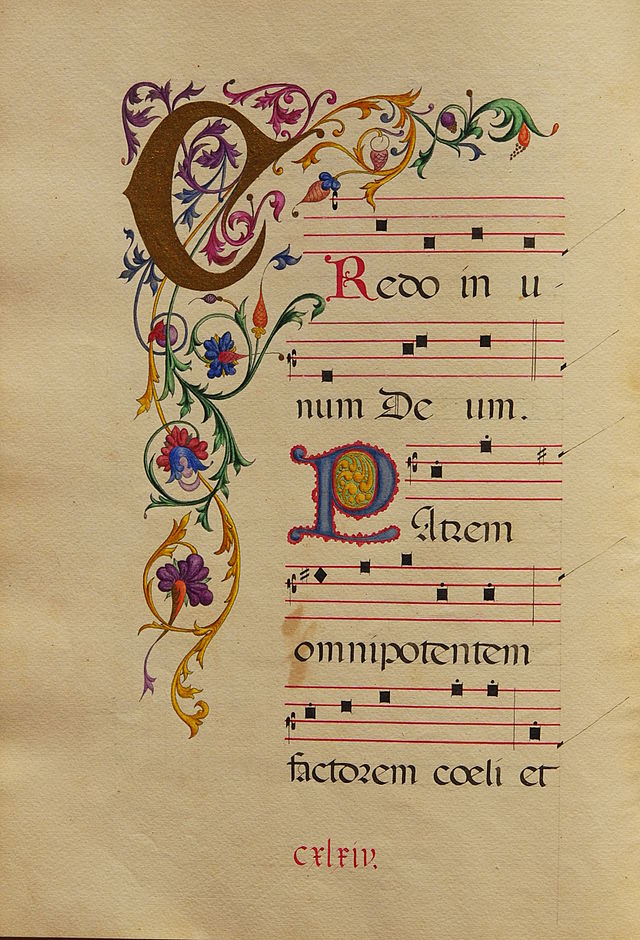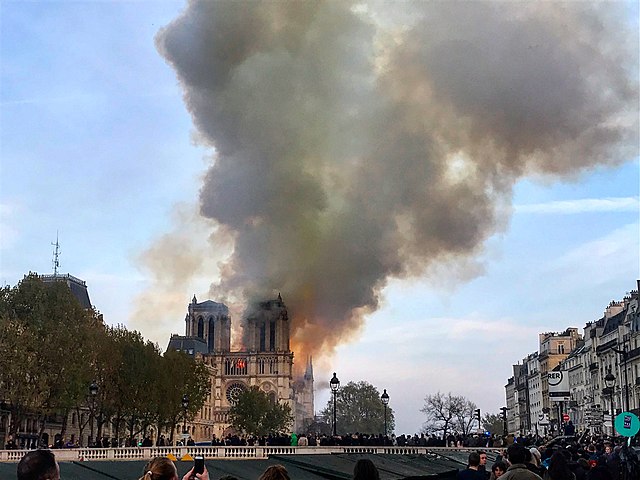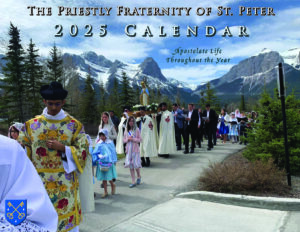Peace of Mind, Part 2
One cannot have true peace without the respect and acknowledgement of the order true peace must be based on. Christ said it: If you love Me, keep My commandments (Jn. 14:15). Repent, convert, discover the transformative love God has for every soul, and turn away from sin. Do good, avoid evil.
How significant this first word Peace to the Apostles!
Remember that the Church is comprised of two elements: one human, one divine. As flawless and perfect as the Church is in her divine element, that is, an infallible teaching and moral authority possible only by Christ’s guarantee of divine protection from error, so flawed and imperfect do we see the Church in her human element, yet she continues to survive – which gives much testimony to the Church’s divine origin.
 Our Lord’s first appearance to the Apostles manifests these two elements of the one true Church: Christ stands triumphant amidst this motley crew of failures and the word Peace rings out. Breathing upon them, He then says Receive ye the Holy Ghost, giving them all the real power to forgive sins; that is, to restore a soul to grace and establish peace within it, a power continued in the Church through Confession until the end of the world. And it is noteworthy that the word for breath is the same as when God breathed life into Adam – both these instances deal with a life established by and rooted in God.
Our Lord’s first appearance to the Apostles manifests these two elements of the one true Church: Christ stands triumphant amidst this motley crew of failures and the word Peace rings out. Breathing upon them, He then says Receive ye the Holy Ghost, giving them all the real power to forgive sins; that is, to restore a soul to grace and establish peace within it, a power continued in the Church through Confession until the end of the world. And it is noteworthy that the word for breath is the same as when God breathed life into Adam – both these instances deal with a life established by and rooted in God.
Therefore, in this first meeting of the Risen Lord with His Apostles do we see the harmonization of the Church’s doctrine and morality: the belief required in the absolute truth of Christ’s teachings and commandments as indicated in the presence of the risen Lord, the conduct of life demanded from belief in those teaching as indicated by the power to forgive sin, thus the establishing of a complete and perfect order for a plan of true peace.
It should be no wonder then that the response for one who claims belief in Christ must be a true interior assent to all the Church proposes for belief as summed up in the Creed, together with a loving submission to the Church’s lawful moral authority which alone has its origin in Christ. No one has any authority to isolate any teaching of Christ and then say peace can be based upon that alone.
 In fact, the way the Creed is worded permits no parceling: it is one long run-on sentence, a grammar teacher’s nightmare, each phrase connected with the word “and,” logically meaning every part must be true for the entire statement to be true.
In fact, the way the Creed is worded permits no parceling: it is one long run-on sentence, a grammar teacher’s nightmare, each phrase connected with the word “and,” logically meaning every part must be true for the entire statement to be true.
Conversely, a personal rejection of any part invalidates the statement of belief and can bring no true and lasting peace; rather, it fosters dissention, discord, and heresy that leaves the Church vulnerable to attack, conditions which, quite sadly, exist within the Church’s ranks, and are at the root of “cafeteria Catholicism,” something as impotent in the world as it is deadly to the soul.
How many more churches need to be set on fire around the world before Catholics as a whole realize they have been chasing after a false peace of “go along, get along” for too many decades that has served to embolden the Church’s enemies?
When Notre Dame Cathedral burned some years ago and thousands of people stood outside watching in utter shock that such a spectacle could happen, do we not wonder when was the last time most set foot in the church, knelt down in humility, and begged God for mercy upon their souls, imploring Him for peace within and resolving to do what they must to get it?

As Catholic churches burn throughout the Middle and Far East and men, women, and children are martyred, we should come to realize that Christ’s peace is not some anemic and formless entity, but quickly cuts to the chase and asserts that we are all sinners against the only one True and Triune God, that we all stand in need of grace at every moment of his life, and that our redemption has been purchased at great cost, of which we must courageously profess. Christ’s peace threatens the powers of hell, evidenced by politicians and woke culture who use the word Christian pejoratively, as it does not fit their narrative on how they wish to establish world peace.
Ultimately, then, peace is something that is received only at the price of something that is given.
Our Lord extends His peace to the degree we wish to have it, and the degree we wish to abide by His commandments; otherwise we can do well to fool ourselves into thinking we have it. Christ’s peace is the tranquility of the order of God, first in the soul and then in the world; it disposes the soul to heroically suffer and bear with patience any trial for the sake of our Lord and the good of His Church, to be constant both in season and out of season.
Certainly the reception of this peace is consequent upon the humble and ongoing recognition of our own weakness and the frank admission of our complete dependence upon Christ for everything. It was a hard lesson for the Apostles to learn, but because Christ found them disposed was He still able and most willing to extend His peace to them.
We should all then find a place for ourselves somewhere in that Upper Room on that Easter day, amidst all the fear and failure, and place our confidence in Him who can pierce any locked door or locked heart. This assumes however we really want Him to come in. Although He may upset our souls at first, He will leave us with what only He can permanently give, both in this world and the next.
My peace I give to you, My peace I leave with you.
April 19, 2021








